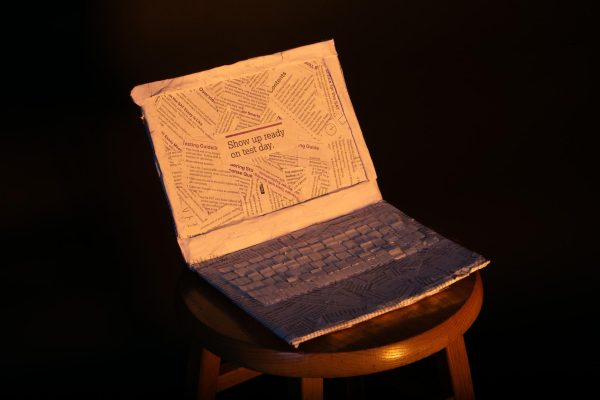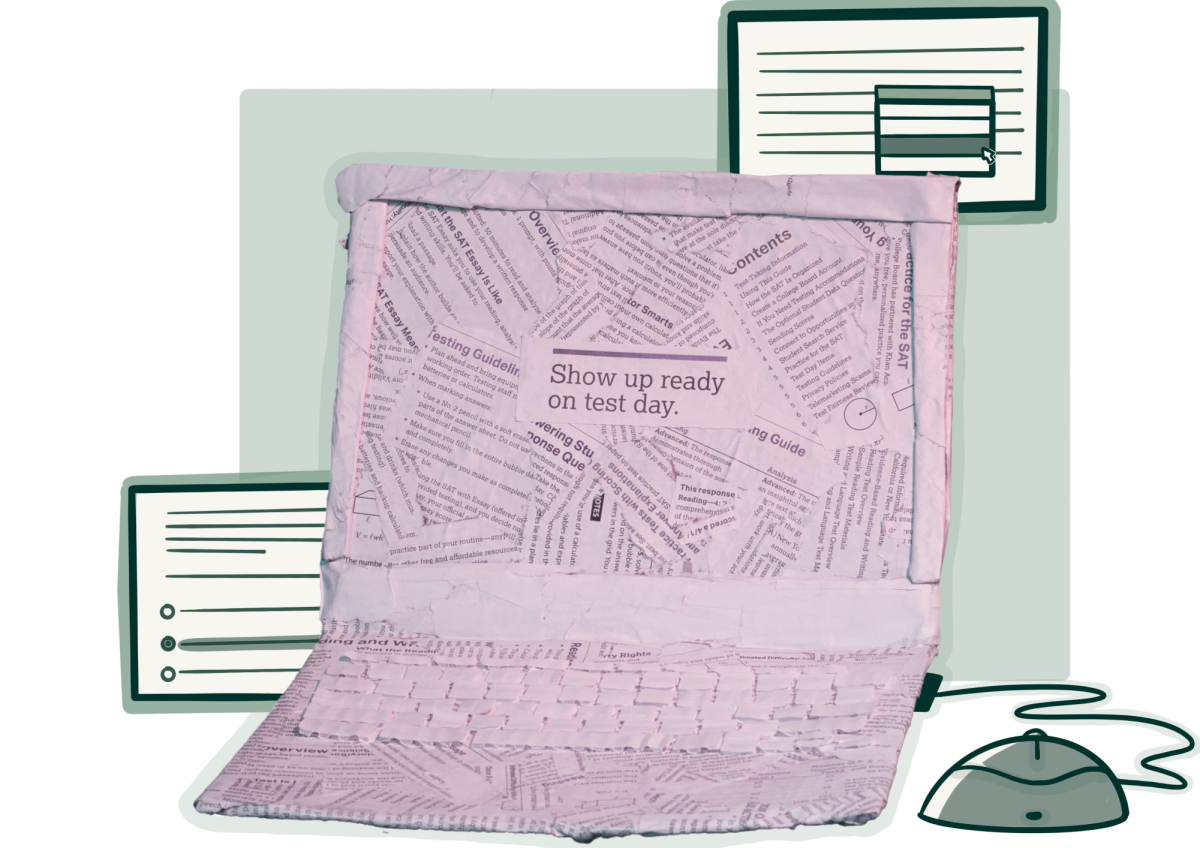134 minutes. 98 questions. Four modules. Two sections. One computer.
This is how the SAT will be set up as of 2024, when it will turn digital after being paper-based since its introduction in 1926. Although paper-based testing has been the standard for generations, the College Board announced that both the PSAT and SAT would become digital as of 2023 and 2024, respectively.
In the current digital age, standardized tests that have been paper-based for as long as they have existed, such as the PSAT and SAT, AP exams, and state-mandated tests, are now increasingly taken on computer-based platforms.
“I feel like it (the change to a digital PSAT) is fairly abrupt, and it affects mostly our class which puts us at a disadvantage,” digital media junior Olivia Le said. “There are not enough resources for us to really start studying for the digital PSAT, and then it puts us at a disadvantage for the National Merit Scholarship.”
In addition to the PSAT and SAT becoming digital, the tests will be adaptive. The digital PSAT and SAT are split into the Reading and Writing Section and the Math Section, with each section being further split into two halves called modules. After a student completes the first module for each section, comprised of a variety of question difficulties, the set of questions in the student’s second module will be assigned to them based on their performance in the first module. More difficult questions are assigned higher point values than easier questions, so students who perform better in the first module and receive harder questions have to get fewer questions right in total to get a higher score overall compared to those who do not do as well in the first module and receive easier questions.
Some students, such as digital media senior Giada Robinson, who was offered the chance by College Board to take a pilot digital SAT before it was fully released to schools, have expressed concern about this change, stating that it might limit a student’s potential to score higher on the tests since the difficulty of the rest of the test is dependent only on their performance in the first module.
“I feel like (even if) I might not know one topic in depth, that doesn’t mean I can’t answer a more difficult question on a different topic,” Robinson said. “If they only give me the easier, less heavily weighted questions I’m not going to do as well. I would (have been) more nervous and a little discouraged because I wouldn’t have the opportunity to score better.”
According to the Glossary of Education Reform, a standardized test is a test in which all test takers receive the same questions or a set of questions from a common question bank and is scored in a “standard” or consistent way. Students like Robinson are concerned that the adaptivity of the new digital PSAT and SAT will cause the tests to become “unstandardized” because not every student who takes the exams will “receive the same questions that test the same skills,” as Robinson puts it.
“I don’t think (the test adapting to previous answers) is really fair because I think the SAT should be the same for everybody so you can really reference yourself against everybody,” communications sophomore Benjamin Seelig said.
Although the SAT going digital is a significant deviation from its setup in the past, some, like school counselor Rachelle Francois-Nicholas, are unsurprised by the change because they feel it is simply the norm in this digital age.
“When you think about it, everything is pretty much transitioning to digital now,” Mrs. Nicholas said. “It’s one of those things that if you’re unable to keep up digitally, or electronically, you’re archaic, so I think if we can move things digitally, and people are comfortable with it, why not try it and see what happens?”

(Belen Rivera)
With the SAT going digital, some feel it is only a matter of time before other major tests follow suit. In fact, College Board announced that digital AP exams will be available as of May 2024 for certain courses, including Computer Science Principles, English Language and Composition, English Literature and Composition, European History, Seminar, U.S. History, and World History: Modern. Additionally, the ACT is piloting the digital version of their exam in December 2023, and will be offering digital exams after December based on the pilot results and availability at test centers.
“It’s a watershed moment marking that a bunch of other tests are going to start going digital,” Seelig said. “Also though, if this doesn’t really go as planned, it might be a turn away from digital, so depending on how this year goes, it could really sway if tests will remain (on) paper or if they will move more to computer-based.”
The generation of students who will be taking the digital PSAT and SAT, although having been raised in the digital age, have still been raised to see paper tests as the norm when it comes to standardized testing, so even though the transition from paper to digital might seem necessary to the College Board in this day and age, it can still feel like a big jump to some students.
“Our age and generation of kids has been trained on paper testing and to just switch it up for such a big test is really unfair,” communications junior Kendall Smith said. “We’ve been preparing for it to be (on) paper for the last two years and then it comes time (to take it), and it’s digital. For future generations, it’s not going to matter as much because they’re going to grow up learning how to test digitally, but for our age of students, it’s really an unfair transition.”
Even with the advantage of having grown up around technology, there is still a clear divide on what this generation’s students feel about learning and testing on paper versus on digital platforms. According to recent survey data from The Muse, 56% of students who responded felt they tested better on paper, and 68.2% of students who responded felt they learned better from paper notes and classwork rather than digital.
“We live in a world where, because the kids are so digitally capable, and they’re so tech savvy, we assume that translates all the time to what kids would rather do on a test,” English dean Carmen Gallardo said. “Paper-pencil tests encompass so many different skill sets and different learning types. It’s a little bit difficult when you only isolate a kid to a computer. My reservations are for the kids who interact with tactile and fine motor skills, and they use the whole idea of processing, touching paper, interacting with paper, being able to write on paper, those things are part of the valuable experience of feeling like you’re taking a test successfully.”




























































![[BRIEF] The Muse recognized as NSPA Online Pacemaker Finalist](https://www.themuseatdreyfoos.com/wp-content/uploads/2025/03/IMG_2942.jpeg)
